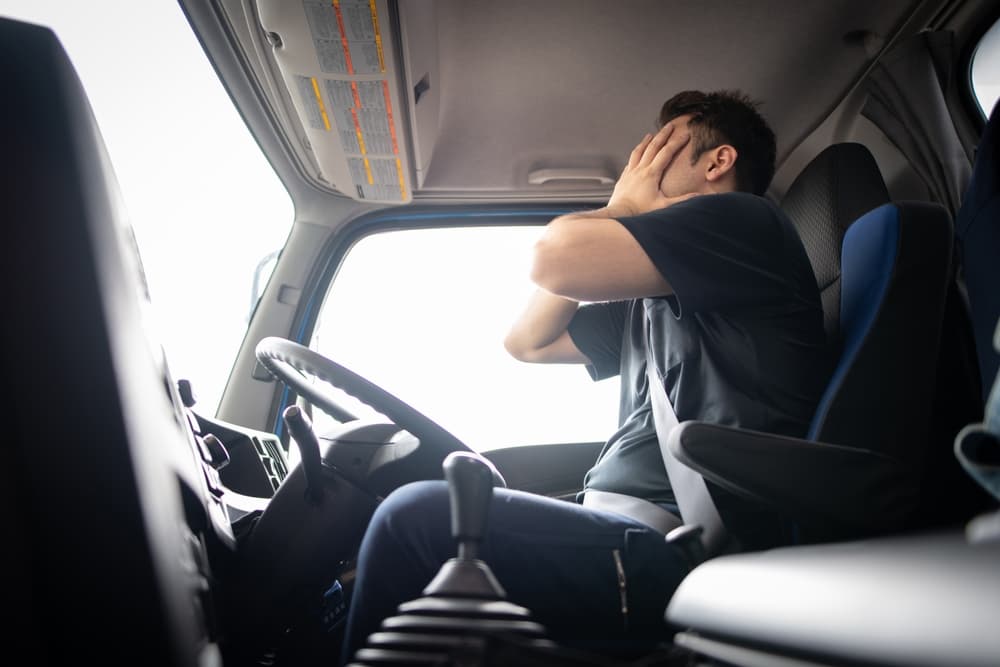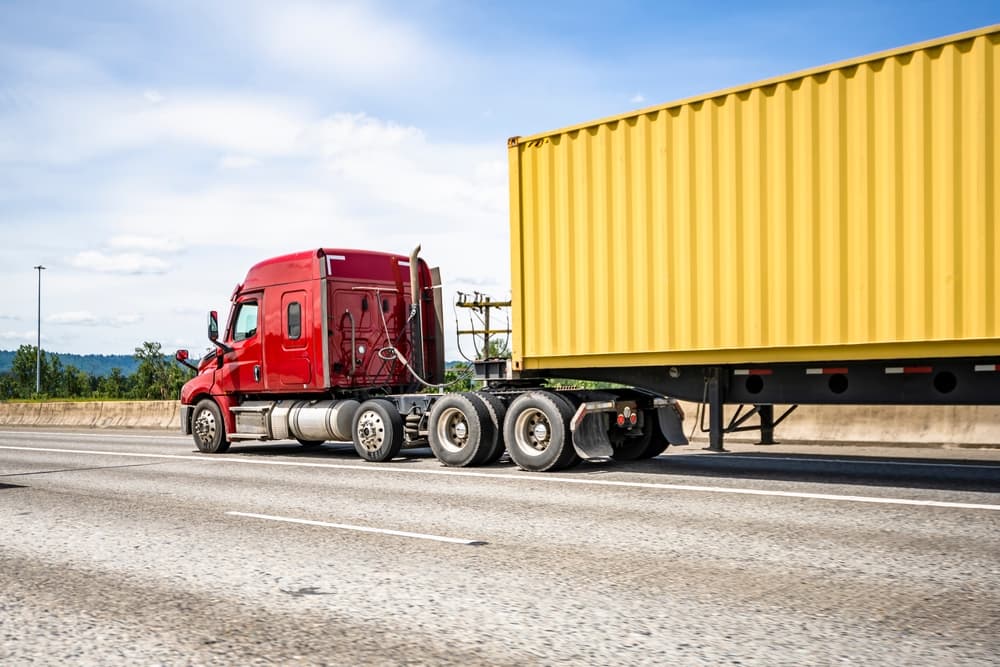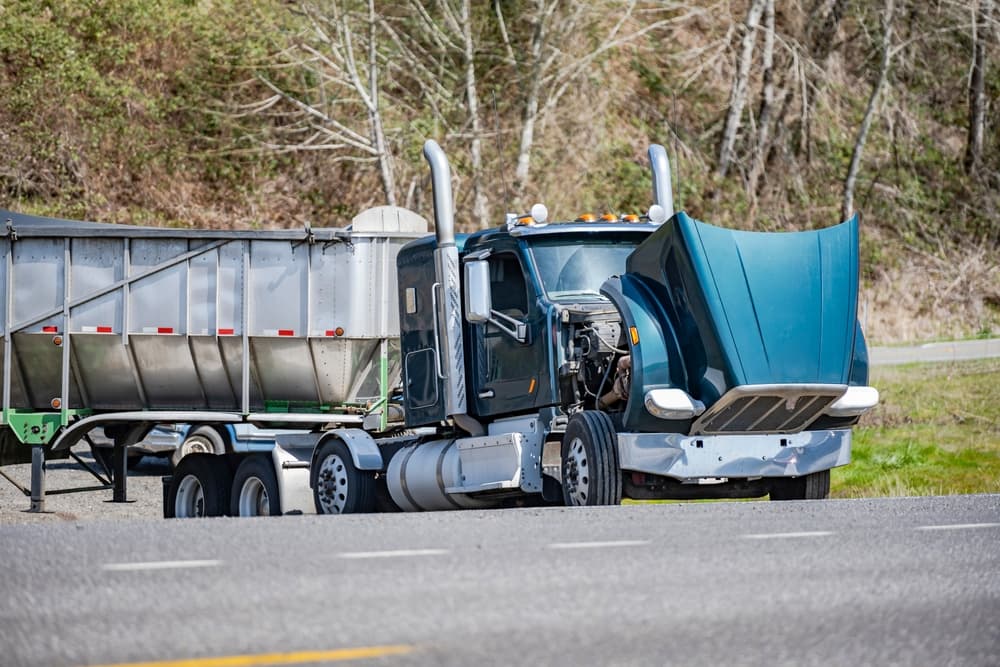Truck accidents frequently happen when truck drivers, trucking companies, and others behave negligently or carelessly. If the insurance company refuses to compensate you fairly, you may need to litigate your case through the court system.
A skilled truck accident attorney can handle every step of the claims-filing and litigation processes for you and represent you during all legal proceedings in your case.
Your lawyer will work hard to highlight the strengths of your case, downplay any weaknesses, and pursue the maximum amount of compensation available to you for your injuries.
Who Can Be Responsible for a Truck Accident?

Truck accidents can result from various factors, but one of the primary causes is negligence, which can involve several parties. Negligence refers to a failure to exercise reasonable care, leading to harm or injury to others.
Different parties can cause truck accidents, including truck drivers, trucking companies, manufacturers, and even other drivers.
- First, truck drivers can cause accidents due to negligence. This can include driving under the influence of drugs or alcohol, speeding, driving while fatigued, or driving while distracted, such as by texting or using a phone while behind the wheel. These actions may all affect a truck driver’s ability to drive safely and can increase the risk of accidents.
- Secondly, trucking companies may bear responsibility for accidents if they fail to properly train and supervise their drivers or if they enforce unrealistic delivery schedules that encourage speeding and fatigue. Additionally, if a trucking company neglects to properly maintain its vehicles or knowingly allows drivers to operate defective equipment, it can be liable for accidents and injuries.
- Thirdly, truck or truck parts manufacturers can be responsible for accidents if their products malfunction. For example, faulty brakes, steering systems, or tires can contribute to accidents even if the driver exercises reasonable care. You may hold the manufacturer accountable for any resulting injuries or damages in such cases.
- Furthermore, other drivers on the road can be negligent and contribute to truck accidents. This may include cutting off a truck, tailgating, or failing to yield the right-of-way. Such behaviors can lead to collisions with trucks, causing serious injuries or fatalities.
Truck accidents resulting from negligence include rear-end collisions, jackknife accidents, rollovers, underride accidents, and blind spot accidents.
- Rear-end collisions often occur when a truck driver fails to maintain a safe following distance or stops suddenly without warning.
- Jackknife accidents happen when a truck’s cab and trailer fold into a V shape – usually due to sudden braking or turning.
- Rollover accidents can occur when a truck driver takes a turn too quickly or encounters hazardous road conditions.
- Underride accidents involve smaller vehicles sliding underneath the rear or side of a truck, often resulting in severe injuries or fatalities.
- Blind spot accidents occur when truck drivers fail to see other vehicles in their blind spots while changing lanes or making turns.
Common Injuries in Truck Crashes
Truck collisions can result in a wide range of injuries, both physical and mental, due to the sheer size and force involved in these accidents.
Some of the most common injuries sustained in truck crashes include:
- Whiplash – Whiplash is a common injury resulting from the sudden back-and-forth movement of the victim’s head and neck upon impact. This can cause neck pain, stiffness, headaches, and dizziness.
- Traumatic Brain Injuries (TBIs) – TBIs occur when the brain suffers damage due to a sudden jolt or impact to the head. Symptoms can range from concussions to more severe cognitive impairments, such as memory loss, difficulty concentrating, and sudden changes in behavior or mood.
- Spinal Cord Injuries – Truck collisions can also cause spinal cord injuries, which may result in partial or complete paralysis. These injuries can profoundly affect a person’s mobility, independence, and quality of life.
- Broken Bones and Fractures – The force of a truck collision can cause bones to break or fracture, leading to pain, swelling, and limited mobility. Commonly affected areas include the arms, wrists, ribs, ankles, and legs.
- Soft Tissue Injuries—Soft tissue injuries, including muscle strains, ligament sprains, and contusions (bruises), are common in truck collisions. These injuries can cause pain, swelling, and a limited range of motion.
- Internal Injuries – Internal injuries, such as internal bleeding, organ damage, or punctured organs, can occur when the body sustains trauma from the force of a truck collision. These injuries may not be immediately apparent and can worsen over time if left untreated.
- Cuts and Lacerations – Broken glass, sharp metal edges, and other debris from a truck collision can cause cuts and lacerations, which may require stitches or surgical intervention to repair.
- Burn Injuries – In cases where a truck collision leads to a fire or explosion, occupants of vehicles involved may suffer burn injuries ranging from minor burns to more severe third-degree burns, which can cause permanent scarring and disfigurement.
In addition to physical injuries, truck collisions can cause psychological harm, including post-traumatic stress disorder (PTSD), anxiety, depression, and emotional distress. Witnessing or experiencing a traumatic event like a truck crash can have long-lasting effects on a person’s mental well-being.
Elements of a Truck Accident Lawsuit

In a truck accident lawsuit, the accident victim must establish certain legal elements to prove their case and seek compensation for their injuries and damages.
These legal elements include:
- Duty of Care – The victim must demonstrate that the defendant – usually the at-fault truck driver or trucking company – owed a duty of care to operate the vehicle safely and in accordance with all traffic laws and motor carrier regulations.
- Breach of Duty – The victim must then show that the defendant breached their duty of care by failing to act reasonably under the circumstances. This can involve actions such as speeding, driving while fatigued, driving under the influence of drugs or alcohol, or driving while distracted.
- Causation – The victim must establish that the defendant’s breach of duty was the direct cause of the accident and resulting injuries. This requires demonstrating that the accident would not have occurred but for the defendant’s negligent actions. In addition to proving causation, the victim must also establish that the defendant’s negligence was the proximate cause of their injuries. Proximate cause means that the injuries were a foreseeable consequence of the defendant’s actions.
- Damages—The victim must provide evidence of the damages the accident caused. These include medical bills, pain and suffering, and other economic and non-economic losses.
Additionally, the truck accident victim must file their lawsuit within the applicable statute of limitations, which is the established time frame for initiating legal action.
By establishing these legal elements, the accident victim can build a strong case for liability against the responsible party and seek fair compensation for the harm they suffered. Victims should consult an experienced truck accident lawyer who can guide them through the legal process and advocate for their rights.
Steps of Filing a Lawsuit and Litigating a Truck Accident Case
Filing and litigating a truck accident lawsuit involves several steps to ensure victims receive compensation for their injuries and losses.
Here’s an overview of the process:
- Seek Ongoing Medical Attention – After a truck accident, the top priority is to seek medical attention for injuries sustained. Ongoing medical care ensures the accident victim’s well-being and provides documentation of injuries for the legal process.
- Consultation with a Truck Accident Attorney – It’s advisable to consult a qualified lawyer who regularly handles truck accident cases. An experienced lawyer can provide guidance on the legal process, assess the strength of the case, and advocate for the victim’s rights. They can also gather the necessary evidence to build a strong case, including the police report, photographs of the accident scene, witness statements, and medical records documenting the victim’s injuries. A lawyer can further notify insurance companies about the truck accident.
- Demand Letter – A truck accident lawyer may then send a settlement demand letter to the at-fault party’s insurance company, outlining the victim’s injuries, damages, and compensation sought. This letter serves as a formal request for settlement negotiations.
- Negotiation and Settlement—The parties may negotiate to reach a settlement agreement outside of court. If you cannot reach a fair settlement, the case may proceed to litigation.
- Filing a Lawsuit – If negotiations fail, the next step is to file a lawsuit in the appropriate court. The lawsuit will outline the victim’s claims against the defendant(s) and seek compensation for damages.
- Discovery Phase – During the discovery phase, both parties exchange information and evidence related to the case. This may include depositions, interrogatories, and requests for documents.
- Trial – If the case goes to trial, both sides present their arguments and evidence before a judge and/or jury. The judge or jury then decides the case's outcome, including any damages awarded to the victim.
- Appeals – Either party may appeal the court’s decision due to errors in the legal process or if they disagree with the trial outcome.
The legal process of filing and litigating a truck accident lawsuit can be challenging. Still, with the assistance of a knowledgeable lawyer, victims can seek the compensation they deserve for all of their accident-related losses.
Recovering Compensation for Truck Accident Injuries

In a truck accident lawsuit, victims may recover damages to compensate them for their injuries and losses.
These recoverable damages fall into two main categories: economic and non-economic.
- Economic Damages – Economic damages are tangible losses that can be easily quantified in monetary terms. Two of the most important types of economic damages include compensation for lost earnings and medical bills. First, injured truck accident victims may seek compensation for income they lost due to not working while recovering from their injuries. This can include both past and anticipated lost income. Additionally, injured accident victims may recover compensation for all the medical bills they incur to treat their injuries. This can include emergency treatment, hospitalization, specialist appointments, surgery, physical therapy, medications, and more. You can seek compensation for your future anticipated medical bills, as well, if you have not yet completed your treatment.
- Non-Economic Damages – Non-economic damages are more subjective and compensate victims for intangible losses that are not easily quantifiable. They include compensation for all of the following:
- Pain and Suffering—This refers to the physical pain, discomfort, and emotional distress that the victim has experienced (and may continue to experience) as a direct result of their injuries. It encompasses the immediate effects of the accident and any long-term or chronic pain and suffering.
- Emotional Distress – Truck accident victims may also be entitled to compensation for psychological trauma, such as anxiety, depression, post-traumatic stress disorder (PTSD), and other emotional distress resulting from the accident.
- Loss of Enjoyment of Life – If the injuries significantly affect the victim’s ability to participate in activities they once enjoyed, they may seek damages for their loss of life enjoyment.
- Loss of Consortium – In cases where injuries affect the victim’s relationship with their spouse or family members, damages may compensate for the loss of support, companionship, and affection.
In some cases, punitive damages may also be available to punish the at-fault party for particularly egregious or intentional conduct – and to deter similar behavior in the future.
By seeking compensation for both economic and non-economic losses, injured truck accident victims can obtain the financial resources they need to rebuild their lives and move forward after a devastating accident.
Speak with an Experienced Truck Accident Lawyer Right Away
Filing a claim or lawsuit arising from a truck accident can be a complicated process. A knowledgeable personal injury attorney can handle every step of the process for you, answer your questions, and work to maximize your final settlement or litigation award.
You must begin the process by seeking your free consultation. A lawyer will assess your options and advise you on who you can hold liable for your injuries and what you might expect to receive. Never wait to begin the process, as there are strict deadlines if your case requires a lawsuit.